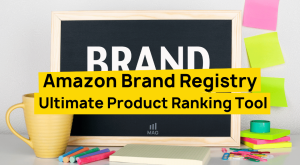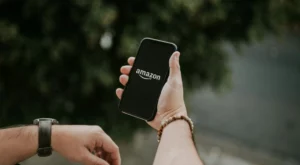Amazon policies keep changing on just about every front, and one area that has been particularly frustrating and confusing for many sellers is UPC, EAN, and GS1 codes.
GS1 is an organization that certainly revolutionized the world of business by generating, tracking, and issuing barcodes – the code acting as a universal identifier to quickly scan, track, and identify any product through a computerized system. Companies of all sizes need barcode numbers to identify and sell their products in stores or online. The power of the data captured through the barcode intends to solve large and complex industry challenges, and Amazon has required it for many years.
Another frustrating factor is that these codes now have an expiration date and must be registered and renewed with an annual payment. Before, you could buy unlimited or retired codes without these obstacles, but that’s no longer the case.
However, the system is not all peaches and cream. The first scenario or issue that is prevalent, and is affecting many sellers, is that the Chinese hacked GS1. As a result, many sellers who had bought UPCs years ago, particularly in the supplements, health & beauty industries, tried to list them and found they’d already been assigned to other products – primarily inactive items on the Amazon platform.
The simple solution, as it stands, is to buy as many UPC’s off eBay as you like – thousands if necessary. But there is one significant problem. If your brand has ever registered with GS1, even once, your UPC’s must come consistently from them. You can’t launch a new product any other way because the code will be rejected, preventing you from listing it.
This scenario is crucial if you’re an Amazon aggregator – a brand looking to acquire other brands to create a conglomerate list of selling opportunities across accounts – as you’ll need to know if your new brands previously used GS1. If they have, you’ll have no choice but to continue at substantial expense and possible, if not probable, inconvenience.
Many sellers, even some who have never registered with GS1, have or will receive an email along the lines of, “We have investigated and found that GS1 does not vend UPC/EANs. If vended by GS1, please provide relevant proof to validate the UPC/EANs.”
In that instance, you’ll have to send them proof that you own these UPC’s, a copy of the certificate issued by GS1, evidence that you’re the legal entity, and a letter or legal agreement from the manufacturer or brand stating that the GTIN you are using to list a product is valid and owned by them or that you are allowed to use your own GTIN to sell unique products with their brand. UPC’s that don’t match will be considered invalid – meaning you can’t list products on Amazon.
If the brand or brands you’ve acquired have not yet used GS1, it’s almost certainly best not to start yet – until it may be forced by them or by Amazon in the future.
As previously mentioned, it’s far more practical to buy retired codes in bulk on eBay rather than do it the right way from GS1 – ironically. Doing so will allow you to burn your codes how you want, without the hassle.
We are an official GS1 Channel Partner, providing Amazon sellers with direct access to GS1 identifiers, including GTINs (Global Trade Item Numbers).
Are you are noticing issues with your listings being removed? Are you seeing messages concerning GS1 Barcode Certification errors? If so, My Amazon Guy has a service to correct this issue for you — stress free.








